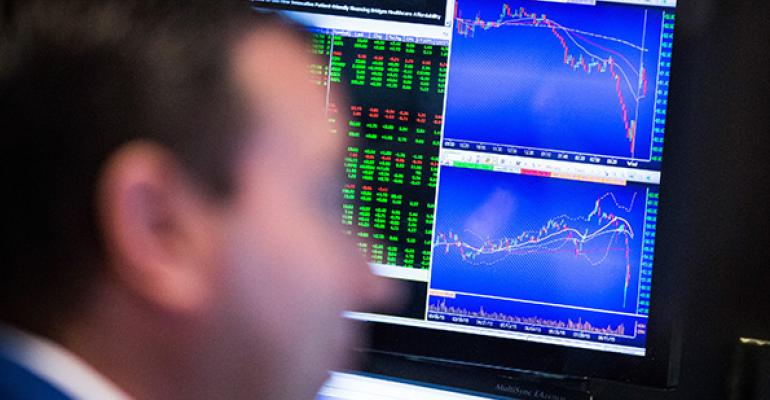By Maiya Keidan
LONDON, July 31 (Reuters) - Lack of volatility in financial markets that has hit 'macro' hedge funds in the first half of the year has not stopped some investors from betting that things could get bumpier in the second half.
Money poured into many macro hedge funds in 2016 and early 2017 hoping to profit from market ructions caused by rising interest rates, tighter central bank policies and U.S. President Donald Trump's policy agenda.
All these events had the potential to create increased divergence between financial markets, but this has largely failed to materialise.
The CBOE Volatility Index, a gauge of near-term stock market volatility, which moves lower during periods of calm, has only closed below 10 on 21 days over the last 20 years, but 13 of these were in the past two months, data from JPMorgan showed.
The unusually calm market backdrop has weighed on the average performance of macro funds, which bet on macroeconomic events across asset classes. This is down 0.73 percent to end-June, industry tracker Hedge Fund Research (HFR) data showed. It also hit investment banks, with Barclays on Friday joining U.S. rivals in seeing trade revenues hit by lower market volatility.
But investors have stayed the course, investing another $5.2 billion into macro funds in the second quarter, the largest cash injection when compared to other strategies, according to HFR data.
In contrast, equities hedge funds received $3.8 billion from investors while strategies that trade off mergers and acquisitions lost $3.8 billion over the same time period.
The low volatility is a puzzle for many investors, JPMorgan said, but high leverage, rising rates and reduction of central bank balance sheets should see it rise, the U.S. bank said.
Stephen Coltman, a senior investment manager at Aberdeen Asset Management, said: "I think if you do start to see some inflation picking up, then that would be a big catalyst for volatility to increase in the market and that's something to watch over the next few months."
Among those that could benefit from increased volatility are Caxton Associates, whose Global Fund lost 10.9 percent in the year to July 25, data compiled by HSBC showed. Another is Moore Capital Management's $4.5 billion Macro Managers Fund, down 2.02 percent to July 20, according to a source close to the firm.
In London, Brevan Howard's main fund is down 5.2 percent, a source with first-hand knowledge of the matter said, while another fund, Markham Rae, lost 10 percent, both in the first six months of 2017. Scottish manager Hugh Hendry's Eclectica, meanwhile, lost 2.6 percent in the year to July 14, the HSBC data showed.
Aberdeen's Coltman said while low volatility was not helpful, he had seen a "very wide range of performance from managers" as some had managed to find trends to take advantage of.
Among them was Israeli hedge fund Adar Capital Partners, which said it made gains of 13.9 percent in its macro fund in the first half of the year, mainly driven by emerging markets.
London-based Silver Ridge Asset Management, meanwhile, is up 9.1 percent in the year to June 30, a source close to the firm said, noting this was because it went against the consensus Trump trade, shorting the U.S. dollar and buying fixed income.
Even those who believe market conditions should become more favourable for macro funds are wary of over-hyping the second half of 2017 given macro's weak performance in the past few years.
The average macro hedge fund made 1.03 percent in 2016 after losing 1.26 percent in 2015, making gains of 5.58 percent in 2014 and losses of 0.44 percent in 2013, HFR data showed.
"Statistically, volatility is unlikely to remain so low forever and there are changes underway on interest rates, quantitative easing, high levels of debt, record highs in some markets, Trump, Brexit and North Korea," a British hedge fund investor said.
"That said, lots of money poured into macro funds last year for many of the same reasons."
Cedric Fontanille, director and head of strategies at investment manager Unigestion, which invests $3.6 billion in alternative strategies is remaining cautious.
"Increased volatility could be beneficial for macro hedge funds for sure," he said, but added volatility could still stay low for a "long time".
(Reporting by Maiya Keidan, additional reporting by Lawrence Delevingne. Editing by Jane Merriman)






